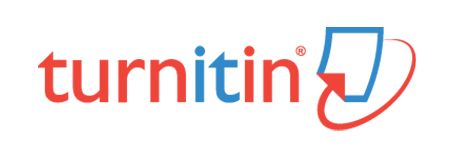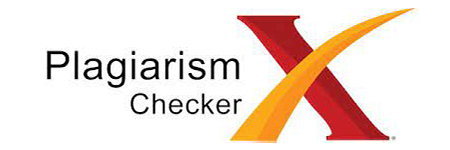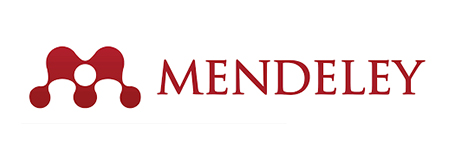Systematic Literature Review: E-Module Development with PBL Approach to Enhance Students' Critical Thinking and Creativity in Science Education
DOI:
https://doi.org/10.71094/esensi.v1i2.118Keywords:
Module, Local Wisdom, Critical ThinkingAbstract
Critical thinking skills are one of the core competencies in 21st-century education, especially in science learning that emphasizes analysis, evaluation, and problem solving. This study aims to identify trends and research focuses on critical thinking in the context of science education through a bibliometric approach. Data were collected from the Dimensions database using the keywords "critical thinking" and related terms in the period 2010–2024. Bibliometric analysis was conducted using VOSviewer software to map the main keywords, the network of relationships between terms, and the temporal dynamics of publications. The results show that the keywords "critical thinking", "local wisdom", "module", "STEM", and "elementary school" emerged as dominant themes. The problem-based learning (PBL) approach, integration of local wisdom values, and the use of contextual modules are the most frequently studied strategies in an effort to improve students' critical thinking skills. Temporal analysis shows a spike in publications since 2020, indicating increasing attention to the importance of developing critical thinking in the science curriculum. These findings provide strategic directions for curriculum development, learning innovation, and educational research in the future.
References
Assefa, S.G., & Rorissa, A. (2013). STEM education: A bibliometric overview. In STEM education: An emerging field (pp. 123–135). Springer.
Astalini, A., Kurniawan, DA, Perdana, R., & Kurniawan, W. (2021). Developing an integrated science teaching module using STEM approach. Journal of Technology and Science Education, 11 (2), 344–357.
Çevik, M. (2017). The effect of problem-based learning on critical thinking skills and science literacy. Journal of Education and Learning, 6 (2), 1–10.
Çınar, S., et al. (2022). The effect of problem-based STEM education on students' critical thinking skills. International Journal of Research in Education and Science, 8 (3), 456–468.
Dwyer, C.P., et al. (2022). Effects of problem-based learning instructional intervention on critical thinking skills and student science literacy. Thinking Skills and Creativity, 45 , 101069.
Ennis, R.H. (2015). Critical thinking: A streamlined conception. Inquiry: Critical Thinking Across the Disciplines, 28 (2), 5–18.
Facione, P. A. (2011). Critical thinking: What it is and why it counts . Insight Assessment.
Farooq, M. S., & Shah, SZA (2023). Trends and hotspots in critical thinking research over the past two decades: A bibliometric analysis. Heliyon, 9 (3), e14141.
Hidayat, T., Fitriani, R., & Suwandi, T. (2020). STEM-based learning to improve critical and creative thinking skills in elementary school. Indonesian Journal of Science Education, 8 (1), 22–30.
Irfannuddin, I., Susantini, E., & Ibrohim, I. (2020). The effectiveness of integrated PBL model to improve students' critical thinking and scientific attitudes. Journal of Physics: Conference Series, 1521 (3), 032062.
Mahanal, S., Zubaidah, S., & Bahri, A. (2019). RD development of PBL-STEM model to improve critical thinking skills of junior high school students. International Journal of Instruction, 12 (4), 607–622.
Nuryani, S., Mahanal, S., & Zubaidah, S. (2020). The influence of creative responsibility-based learning model on students' critical thinking skills. Indonesian Journal of Science Education, 9 (2), 151–158.
Nuswowati, M., et al. (2020). The effects of problem-based learning on critical thinking skills and student science literacy. Lenses: Journal of Physics Education, 8 (1), 33–42.
Qarareh, A. O. (2016). The effect of using the constructivist learning model in teaching science on the achievement and scientific thinking of 8th grade students. International Educational Studies, 9 (7), 178–191.
Rizal, F., Susantini, E., & Hermawan, H. (2021). Critical thinking skills in science learning: A meta-analysis. International Journal of Instruction, 14 (3), 441–460.
Sahyar, M., et al. (2017). PBLPOE: A learning model to enhance students' critical thinking skills. Journal of Education and Practice, 8 (6), 1–8.
Samsudin, A., et al. (2022). A bibliometric analysis: Research trends of critical thinking in science education. Journal of Engineering Science and Technology , Special Issue 6/2022, 123–131.
Saputro, DRS, Mulyani, S., & Yamtinah, S. (2022). The effectiveness of local wisdom-based contextual science module to develop students' critical thinking skills. Indonesian Journal of Science Education, 11 (1), 132–139.
Savery, J.R. (2006). Overview of problem-based learning: Definitions and distinctions. Interdisciplinary Journal of Problem-Based Learning, 1 (1), 9–20.
Semerci, N. (2000). The effect of problem-based learning on critical thinking skills and science literacy. Journal of Educational Research, 93 (3), 135–145.
Shahin, M., et al. (2024). Tracing the evolution of STEM education: A bibliometric analysis. Frontiers in Education, 9 , 1457938.
Tas, M., & Bolat, Y. (2022). An examination of the studies on STEM in education: A bibliometric analysis. International Journal of Research in Education and Science, 8 (2), 344–357.
Vallespin, M.R. (2024). Mapping the landscape of critical thinking in science education: A bibliometric analysis. SSRN Electronic Journal. https://doi.org/10.2139/ssrn.4471069
Yıldız, M., & Yıldız, M. A. (2024). Critical thinking and education: A bibliometric mapping of the research. Participatory Educational Research, 11 (1), 1–15.
Zubaidah, S. (2016). 21st century skills: Skills taught through learning. National Seminar on Education, State University of Malang .
Downloads
Published
Issue
Section
License
Copyright (c) 2025 Adisan, Agus Ramadan, Abdul Syukur, Aris Doyan (Author)

This work is licensed under a Creative Commons Attribution-ShareAlike 4.0 International License.










